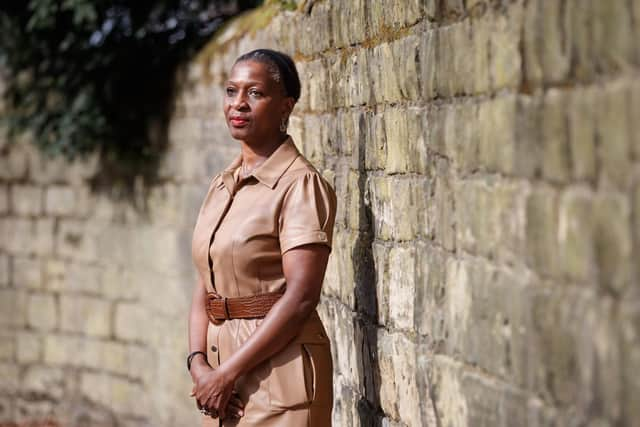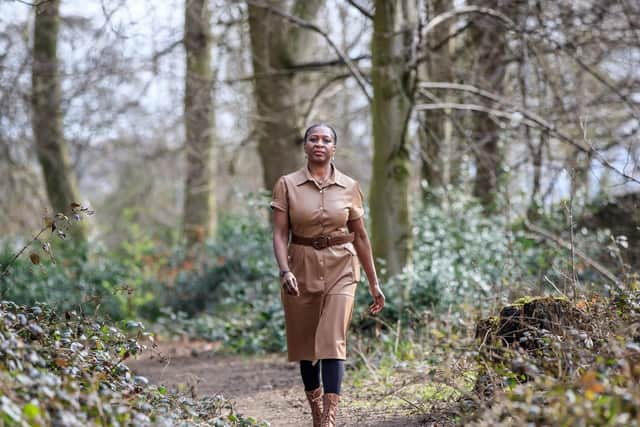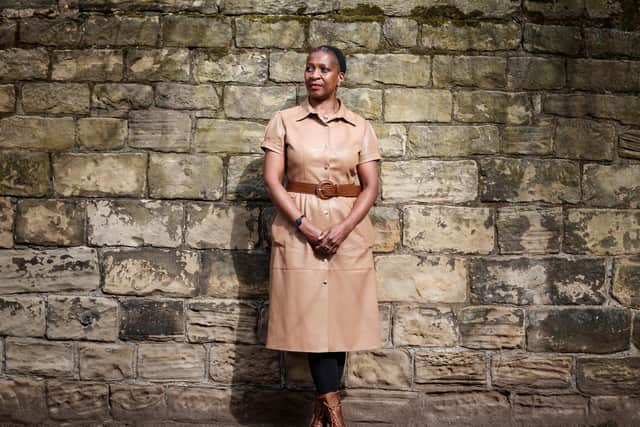University of Leeds at the heart of £2.5m project researching effect of pandemic on ethnic minority communities
and live on Freeview channel 276
The project aims to investigate the impact of the pandemic on wellbeing and resilience across black, Asian and minority ethnic (BAME) groups and will make recommendations to the Government to ensure long-term support is provided to those who need it.
Professor Iyiola Solanke, is the principal investigator and a professor at the University of Leeds
Advertisement
Hide AdAdvertisement
Hide AdShe said recognising the specific impacts of Covid-19 on these communities is important to prevent further discrimination and inequality, and the information collected by the project could be used to help in future pandemics.


The Consortium on Practices for Wellbeing and Resilience in Black, Asian and Minority Ethnic Families and Communities (Co-POWeR) project will speak to people from a range of groups, including the police, local authorities, teachers, social workers and the medical community, to explore the impact of Covid in a number of areas, such as children, the elderly, physical activity and the application of emergency powers.
Prof Solanke, professor of EU law and social justice at the university of Leeds, explained: "It's really about trying to hear the voices of individuals and, by hearing their voices, allowing them to tell their own story so there's a sense of empowerment, it's not just people speaking about them but they are telling their stories in a way the Government can hear.
"We'll be talking to different communities, as well as individuals themselves, to try to get a 360-degree picture of what is going on, so not just from the recipients of care, but also those who are delivering the care, not just those who are perhaps being arrested and given fixed penalty notices, but also those who have the responsibility to give them."


Advertisement
Hide AdAdvertisement
Hide Ad"The premise of the project is that, if you live in a BAME family or community, you're battling two viruses at the moment, not just Covid, but also discrimination," she said.
"It's a real cocktail of stresses that are affecting the lives of families in BAME communities and we want to make people in Government aware of that compound effect, and make the Government aware of how that does affect short-term and long-term resilience."
Prof Solanke said there has been little research into how people in BAME communities respond to pandemics and it is important that policy-makers do not overlook crucial problems by taking a "colour-blind approach".
She said: "You have to take discrimination and racism into account and, when you add that, then that might throw up many different issues. This project is really important, not just for BAME communities, but also for society as a whole because we don't want to find ourselves in a situation where we end up with a part of society, a racialised part of society, that is also somehow further stigmatised because the specific impacts of the Covid pandemic were not recognised and were not taken into account."


Advertisement
Hide AdAdvertisement
Hide AdProf Solanke said the findings of the 18-month project, which has been awarded £2.5m by UK Research and Innovation, would be important to policy-making in response to the Covid-19 pandemic, but could also be valuable in the future when responding to other pandemics or emergency situations."
Support the YEP and become a subscriber today. Enjoy unlimited access to local news and the latest on Leeds United, With a digital subscription, you see fewer ads, enjoy faster load times, and get access to exclusive newsletters and content. Click here to subscribe